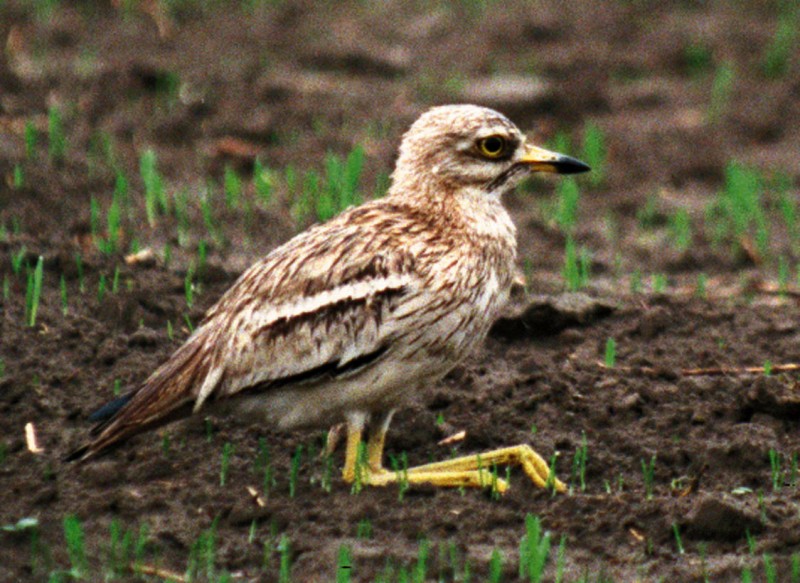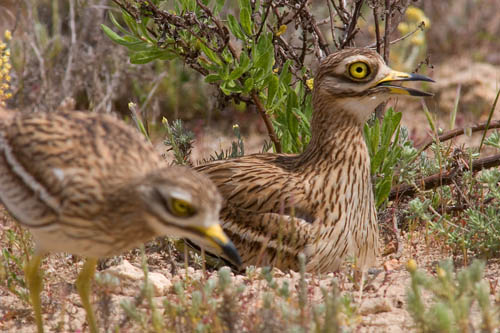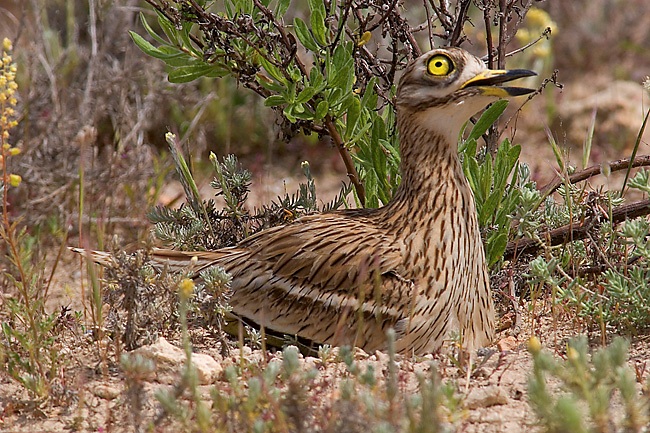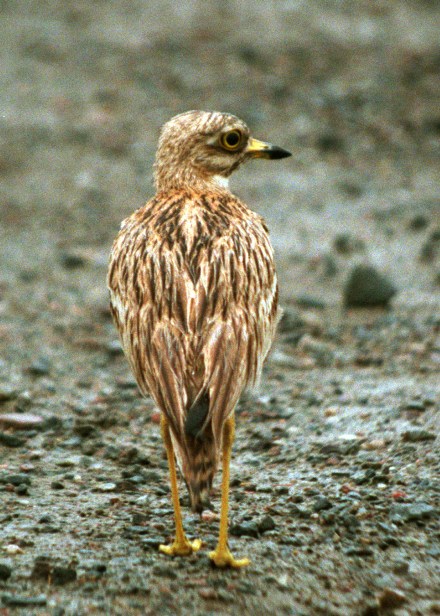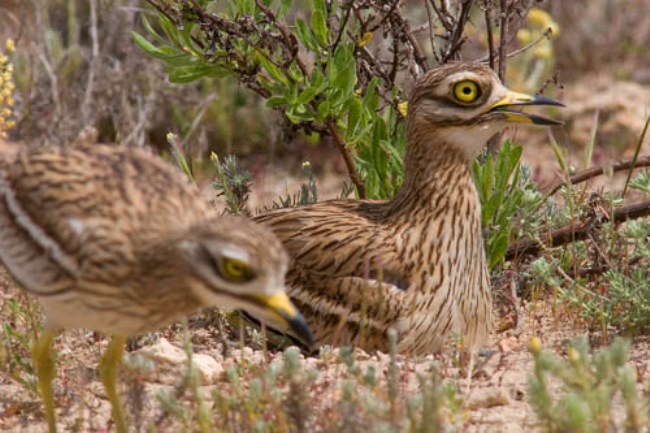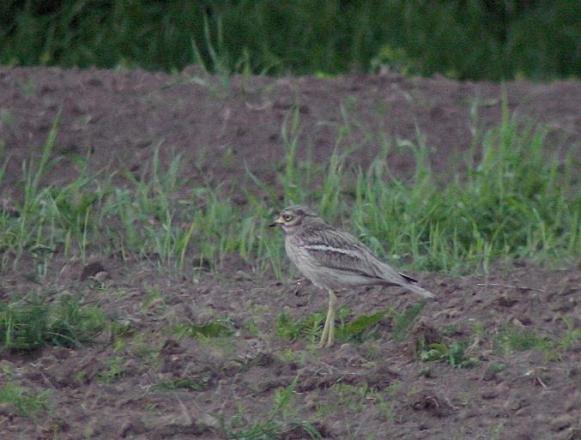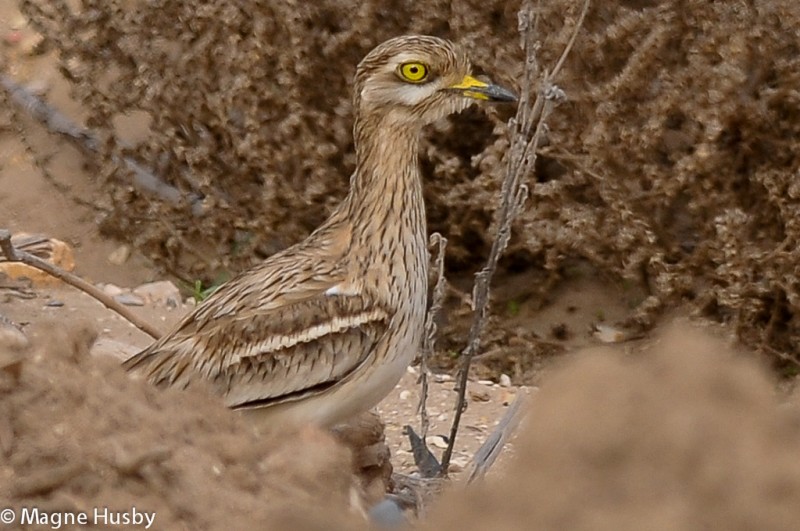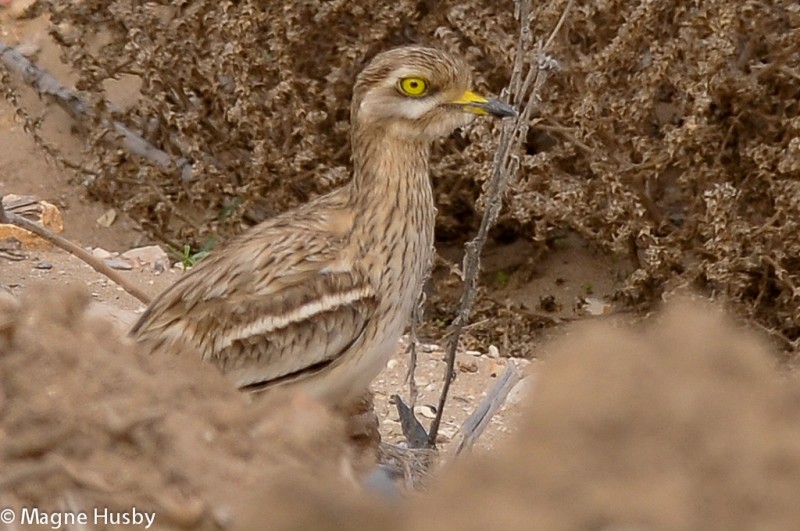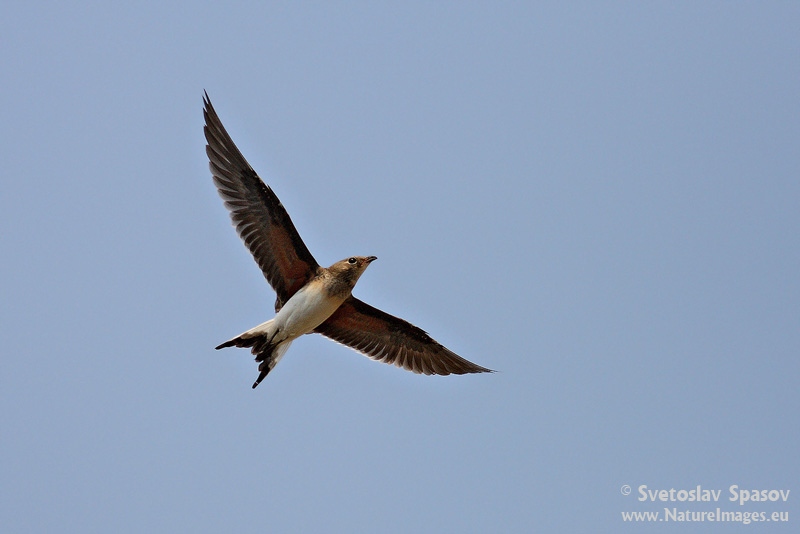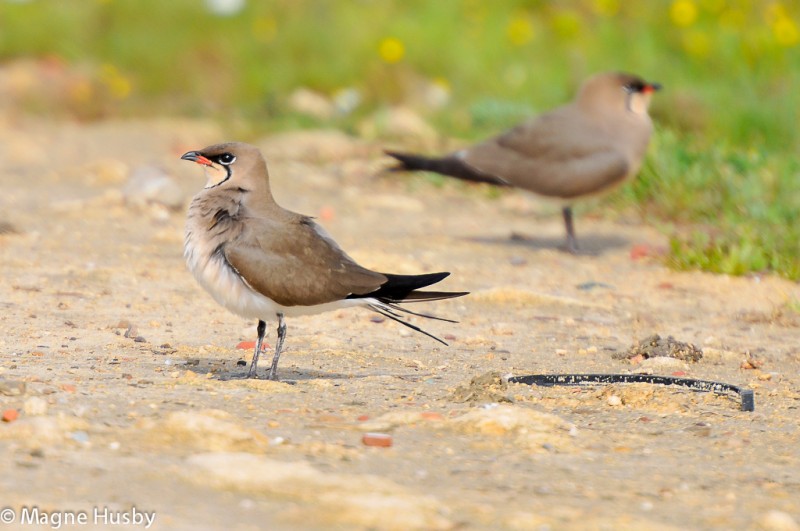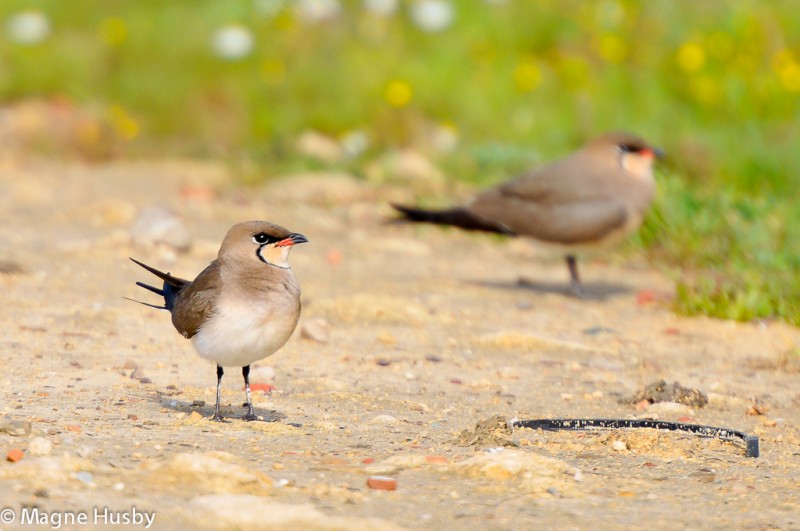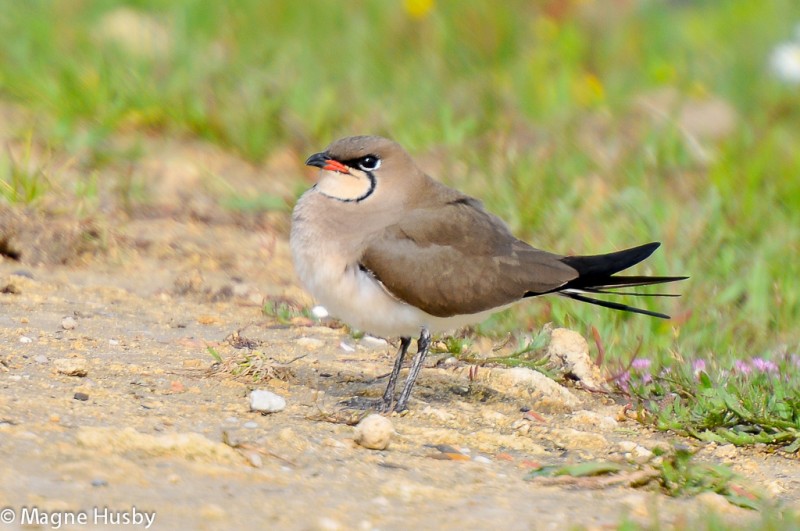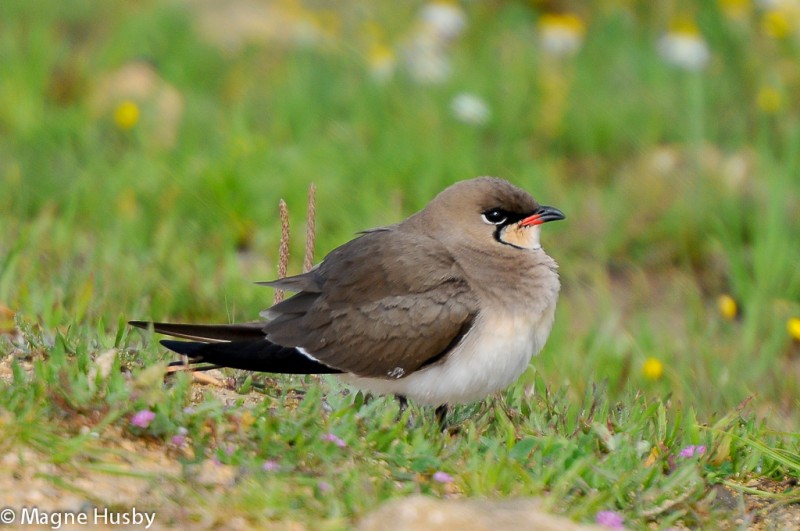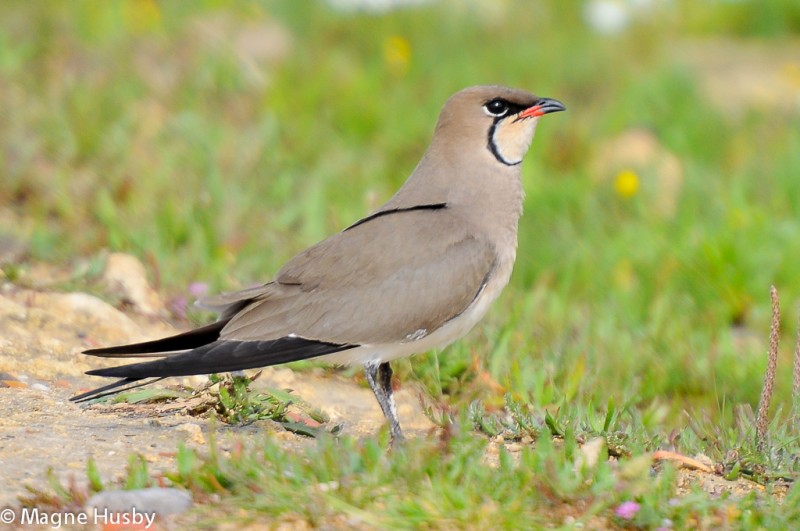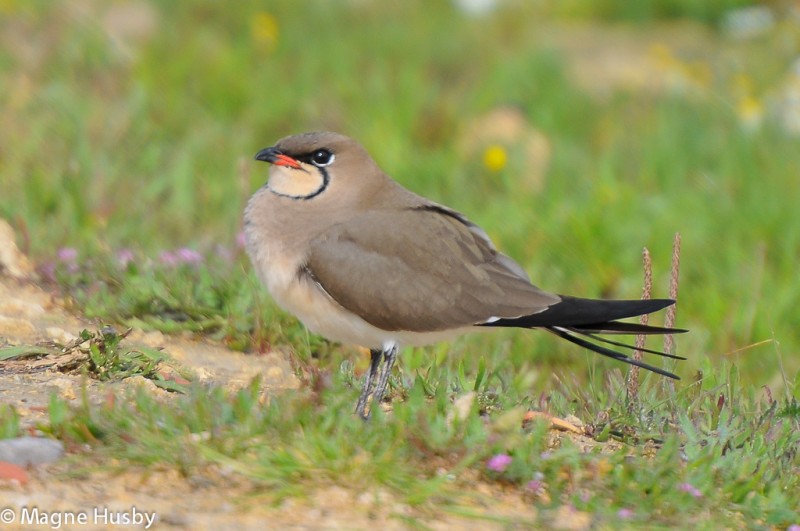Stone Curlew (Burhinus oedicnemus)
Collared Pratincole (Glareola pratincola)
Unmistakeable in all of WP except for Egypt where Senegal Thick-knee occurs. Differs from said species by more yellow on bill and only narrow white band on coverts framed in black (less prominent in immatures). Mostly nocturnal and easily overlooked at daytime when resting. Runs for cover with hunched posture if disturbed. Easily identified in flight by dark wing with white window, long tail and trailing toes. Betrays it's presence at dusk when groups of birds often starts calling and moving about.
Sound:Very vocal at twilight with various wailing, curlew-like calls, undulating in crescendoes, often in joined choruses. Most typical call a cyclic "turrru-leeek", with rolling "r" and second part higher pitched (at end of sound file).
Two types of call:
Distribution:
Xeno-canto: map
Ecology:Birdlife ecology
Links:
Observation.org Latest observations
Image search Flickr NB! May give other species
CCSlightly smaller than Golden Plover with much slender appearance. Only likely to be confused with other pratincoles, but diagnostic field marks often difficult to see. Differs from Black-winged Pratincole by rufous underwing and narrow, white trailing edge to upperwing (both characters requires good light). Tail streamers longer than wing-tips and base of bill with more red (in breeding plumage). Sexes alike. Lacks black necklace in winter plumage. Immature birds are similar to winter-plumaged adults, but with additional scaly upperparts. Often confusing at first glance when in flight, due to tern-like, acrobatic flight not resembling other waders.
Sound:Quite vocal. Nasal tern-like, far-carrying calls often betrays its presence before it is seen. Short and sharp "kiev" or "kip" frequently used. Most diagnostic call is a two-part, rolling "kivik-kirrrrrrr", with the latter part slightly descending. Easily confused with Black-winged Pratincole, but the hard parts are more resonant, and less clicking and staccato, while the more melodic components are less mewing. Also quite similar to Little Tern in timbre, but the two-part structure in the diagnostic call is different.
Various calls:
Distribution:
Xeno-canto: map
Ecology:Birdlife ecology
Links:
Observation.org Latest observations
Image search Flickr NB! May give other species
CC
 English
English Albanian
Albanian
 Armenian
Armenian
 Bulgarian
Bulgarian
 Catalan
Catalan
 Croatian
Croatian
 Czech
Czech
 Danish
Danish
 Dutch
Dutch
 Finnish
Finnish
 French
French
 Georgian
Georgian
 German
German
 Greek
Greek
 Hungarian
Hungarian
 Italian
Italian
 Latvian
Latvian
 Lithuanian
Lithuanian
 Macedonian
Macedonian
 Norwegian
Norwegian
 Polish
Polish
 Portuguese
Portuguese
 Romanian
Romanian
 Russian
Russian
 Sami : Lule sami
Sami : Lule sami
 Sami : North sami
Sami : North sami
 Sami : South sami
Sami : South sami
 Scientific names
Scientific names
 Serbian
Serbian
 Spanish
Spanish
 Swedish
Swedish
 Ukrainian
Ukrainian


